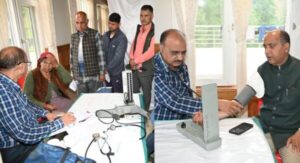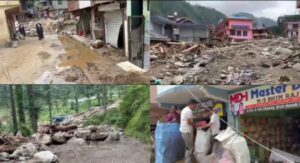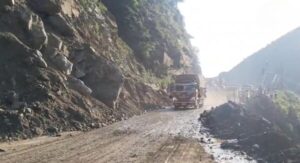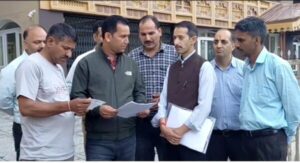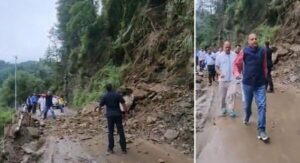
MP Dr. Sikander Kumar
Shimla, February 10: Himachal Pradesh has made a significant stride in rural sanitation under the Swachh Bharat Mission, with over 16,000 villages now free from open defecation. Union Jal Shakti Minister C.R. Patil announced this achievement in response to a query from MP Dr. Sikander Kumar during the Rajya Sabha session on Monday. According to Patil, a total of 16,125 villages in Himachal Pradesh have been officially declared Open Defecation Free (ODF) Plus. These include 1,497 villages in the Udyamana category, 558 in the Ujjwal category, and 14,070 villages in the Utkrishta category.
Patil highlighted that the state has also made significant progress in solid and liquid waste management. Under the Swachh Bharat Mission’s Solid and Liquid Waste Management (SLWM) initiatives, Himachal has established numerous assets to support these efforts. A total of 6,532 waste collection and separation sheds have been built, along with 8,236 community compost pits and 1,25,782 family compost pits. The state has deployed 4,967 vehicles to collect garbage, constructed 7,903 community soak pits, and built 1,33,310 family soak pits. Additionally, 7,81,276 kitchen gardens have been promoted, along with the development of 2,158 phyco-traps, diverters, wetlands, and ponds, and 620 waste recycling ponds.
MP Dr. Sikander Kumar’s Inquiry in Rajya Sabha
Dr. Sikander Kumar, representing Himachal Pradesh, raised questions in the Rajya Sabha about the current status of the ODF Plus model in the state and the progress of the Swachh Bharat Mission-Gramin. He sought information on whether the central government had recently reviewed the state’s sanitation efforts, as well as the strategies being employed to maintain cleanliness, manage solid and liquid waste, and address emerging challenges.
Central Government’s Support and Strategy
In his response, Union Minister C.R. Patil confirmed that a review meeting had been held on December 3, 2024, with officials responsible for rural sanitation in Himachal Pradesh. The meeting, held in New Delhi, assessed the current state of cleanliness in the region and focused on ensuring that villages meet the new cleanliness standards. He praised the state’s efforts in improving infrastructure and resources to achieve the ODF Plus target under the Swachh Bharat Mission.
Patil also emphasized that while the primary responsibility for maintaining cleanliness lies with the state government, the central government continues to provide financial and technical support. He further explained that the second phase of the Swachh Bharat Mission-Gramin, running from 2020-2021 to 2025-2026, places a strong emphasis on sustaining open defecation-free status and enhancing solid and liquid waste management in rural areas.
Focus on Rural Areas and Remote Regions
The Union Minister highlighted that the second phase of the Swachh Bharat Mission is progressing rapidly, particularly in converting villages from the ODF to ODF Plus model. This initiative is being implemented across the country, with special attention to the hilly and remote areas of Himachal Pradesh to ensure sustainable sanitation solutions.
With these concerted efforts, Himachal Pradesh is paving the way for a cleaner and healthier rural landscape, ensuring lasting improvements in sanitation infrastructure and waste management across the state.

Continuing the achievement of the journey of effectiveness and credibility of more than 10 years in the career of journalism, as a woman journalist, I am Serving as the founder, promoter and editor of DiaryTimes with the trust and support of all. My credible coverage may not have given a big shape to the numbers, but my journey presents articles that make you aware of the exact and meaningful situations of Himachal’s politics, ground issues related to the public, business, tourism and the difficult geographical conditions of the state and financial awareness. DiaryTimes, full of the experience of my precise editorial expertise, is awakening the flame of credible journalism among all of you, so that the eternal flame of meaningful change can be lit in the life of the people of the state and the atrocities being committed against the people can be brought to the fore, I am motivated for that. If even a small change comes with the power of my journalism and the whole world becomes a witness to that issues, then I will consider myself fortunate.

